In preparation for my upcoming performance projects, I attended the Yokohama Performing Arts Meeting (YPAM) in December 2023. Established in 2005, the YPAM is an annual gathering of performance makers from all over the world. The two-week-long event included symposiums, roundtables, workshops, studio showings, and world premieres of mostly East Asian work. There were also avenues to network and forge new cultural exchanges and creative collaborations. My first exposure to the YPAM was in 2020 right before Covid hit – I was then a sponsored participant by the Japan Foundation of Kuala Lumpur. Thanks to the AHRC South, West and Wales Doctoral Training Partnership who funded my trip this time around, I picked up where I had left off.
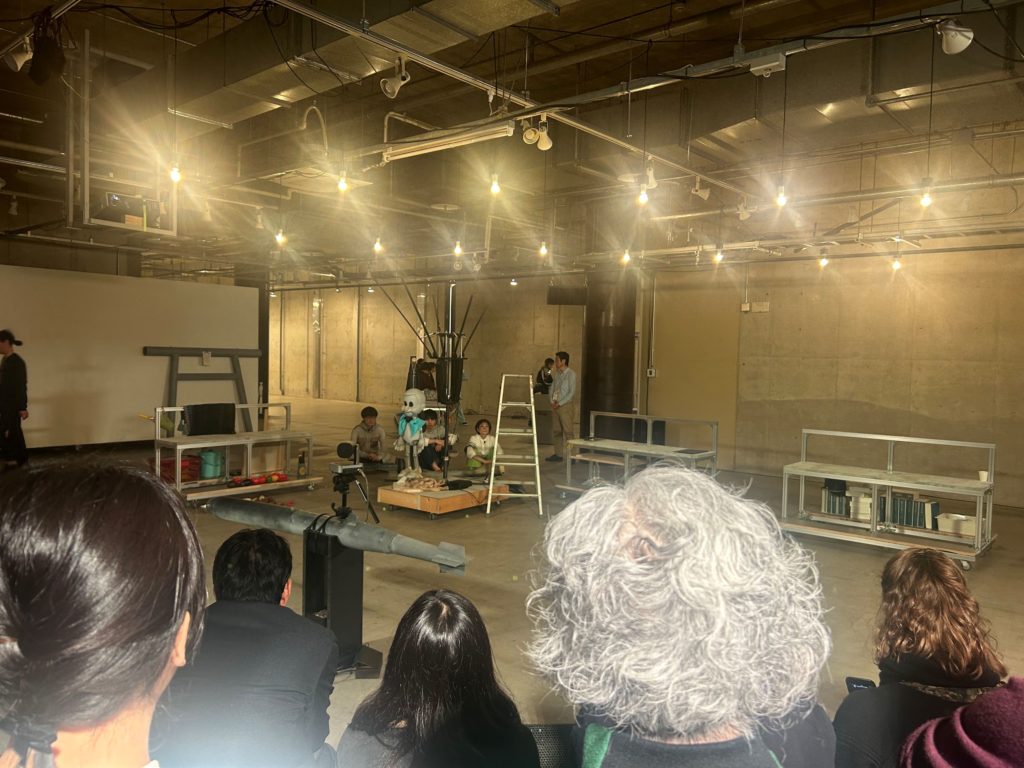
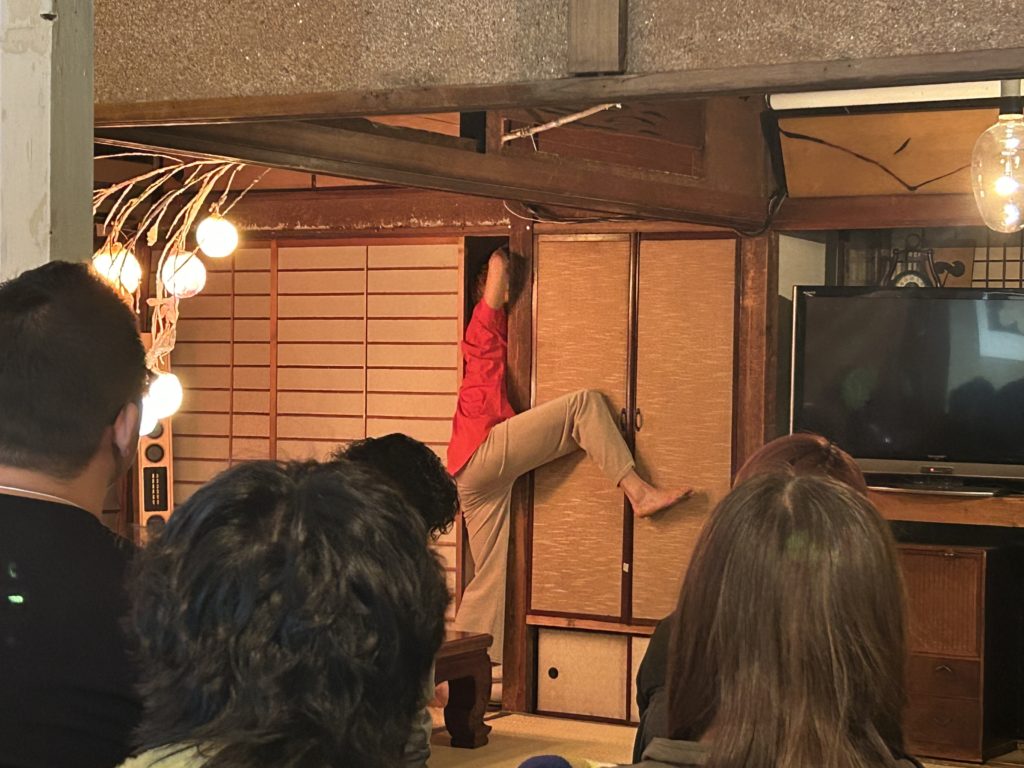

A selection of performances at YPAM 2023, from left to right: The Japanese Ideology; in, from, within here; and Jazz Daimyo. Photos by the author.
I witnessed a total of 11 performance premieres in and around Tokyo and Yokohama. These works, from self-produced amateur experiments to city-funded professional productions, coincidentally revolved around identity politics, life after the pandemic, and anxieties about the future. I sensed subtle pessimistic attitudes toward East Asian authorities in several projects, manifested through metaphor, imagery, and irony. These performances also utilized – at varying degrees – technology and media that amplified and challenged the physical body in space, while inviting scrutiny on its current position in performance making. I also attended several presentations and roundtables by artists whose works spoke to my practice analysis on intermedial performance.
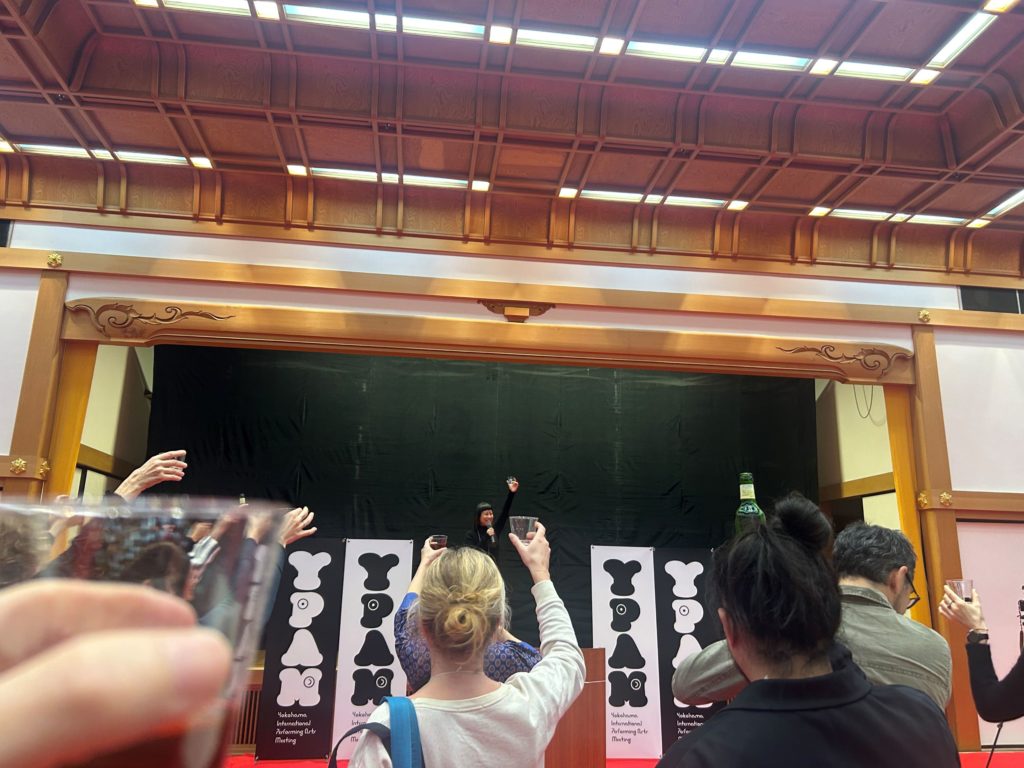
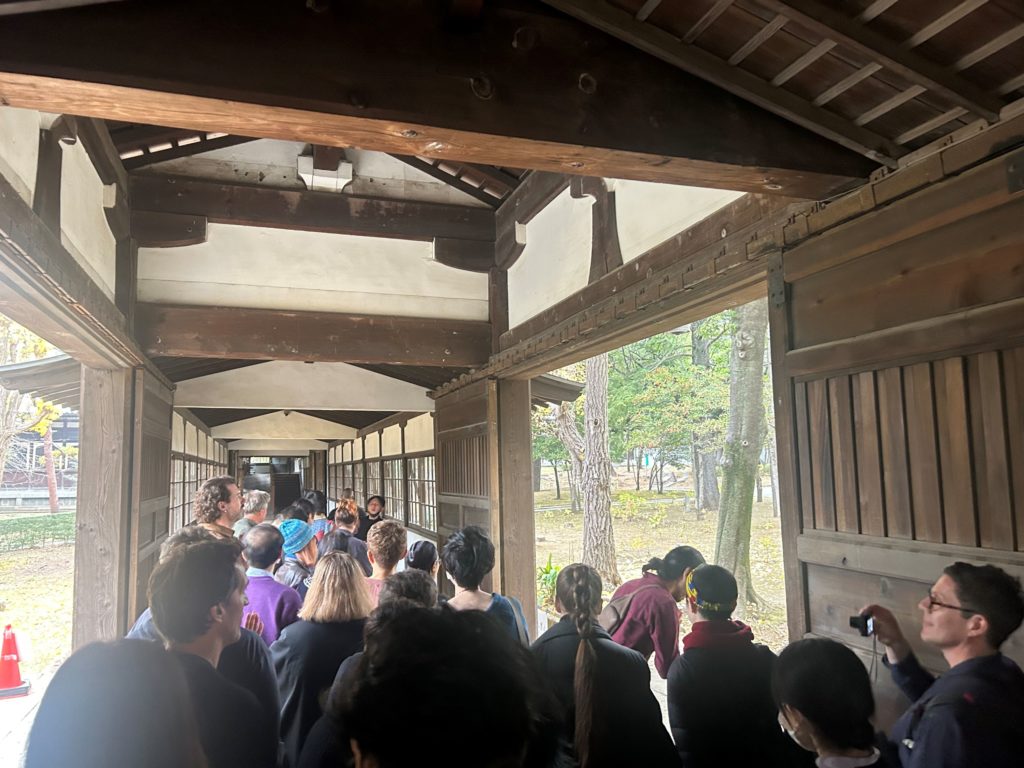
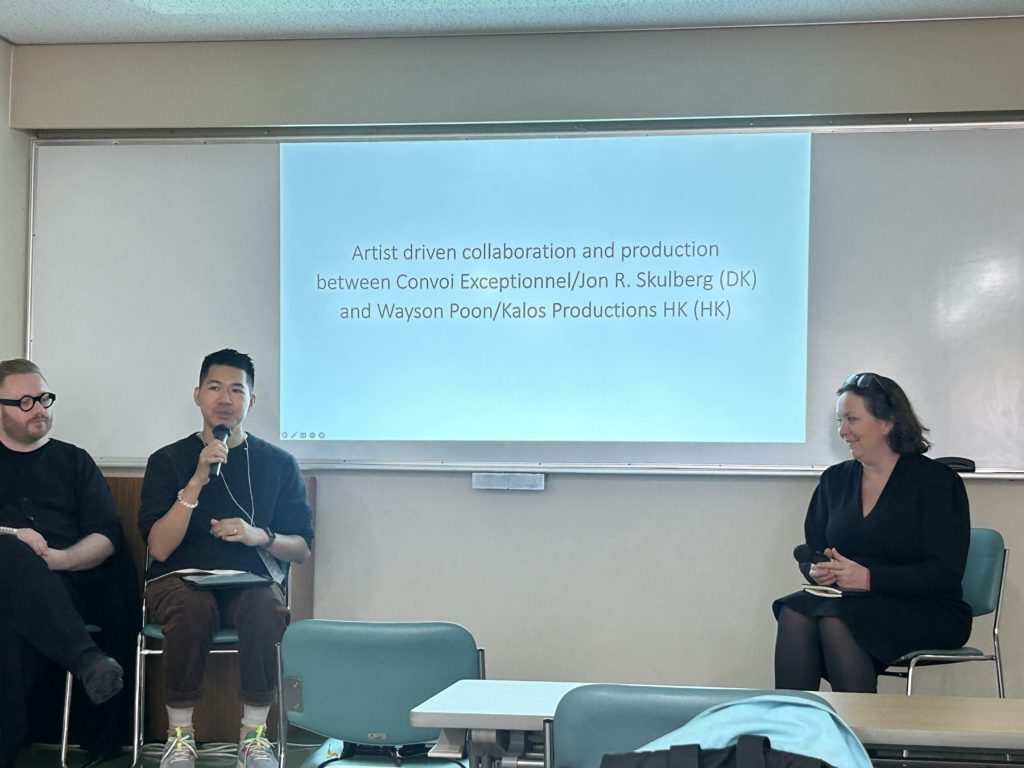
Events at YPAM 2023, from left to right: The welcome reception; a visit to Soji-ji Temple; and a discussion on international collaborative practices with Hong Kong dancer Wayson Poon. Photos by the author.
I forged new and strengthened existing professional relationships with a diverse group of performance makers from Japan, the Philippines, Hong Kong, Thailand, Australia, and New Zealand. These individuals have expressed interest to collaborate with me on my performance projects in the next three years. I was particularly drawn to Murasaki Penguin, an interdisciplinary collaboration between dancer-choreographer Anna Kuroda and sound-multimedia artist David Kirkpatrick, whose works cross cultures and the boundaries of dance, sound, video, electronics, and large-scale installation. I also visited their new cutting-edge space at the neighbouring Totsuka district. The building’s exterior was inspired by geometric Froebel blocks using raw materials from the local community.
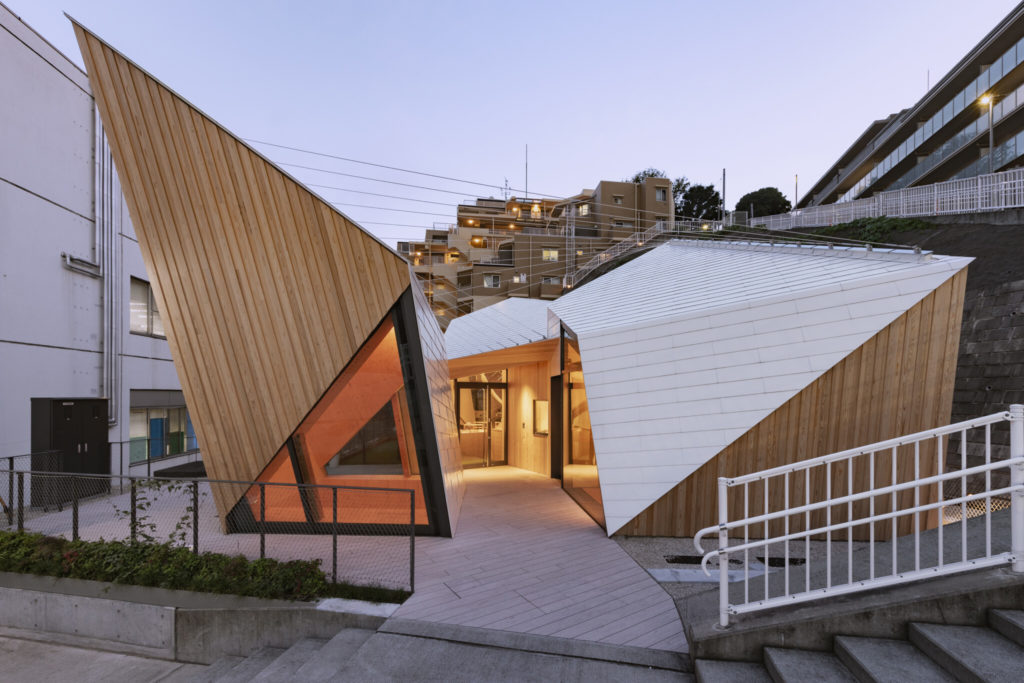
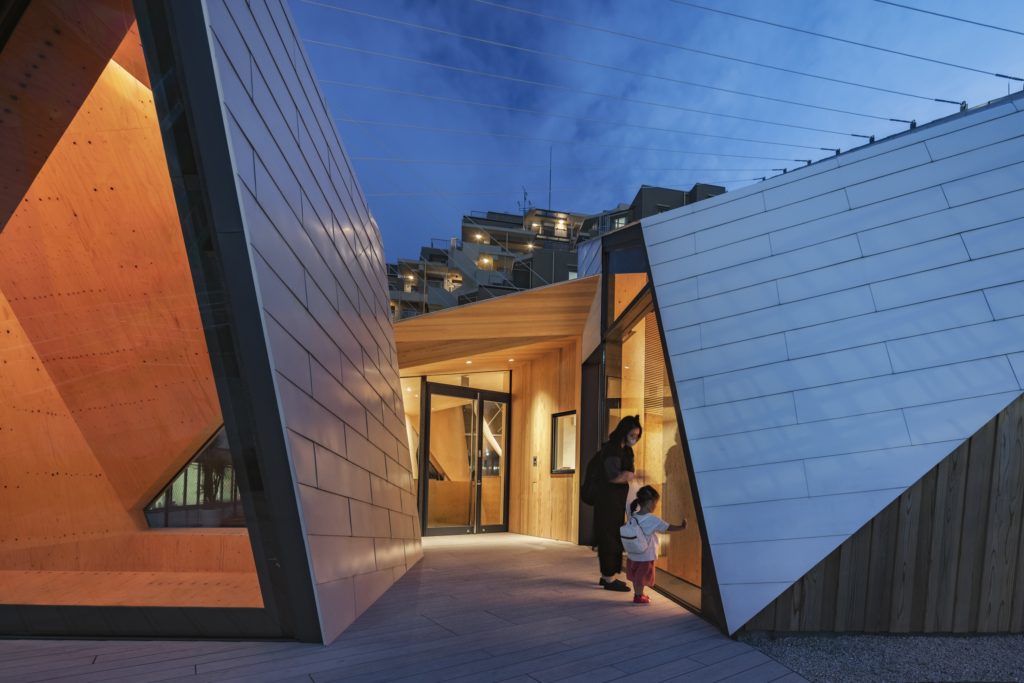
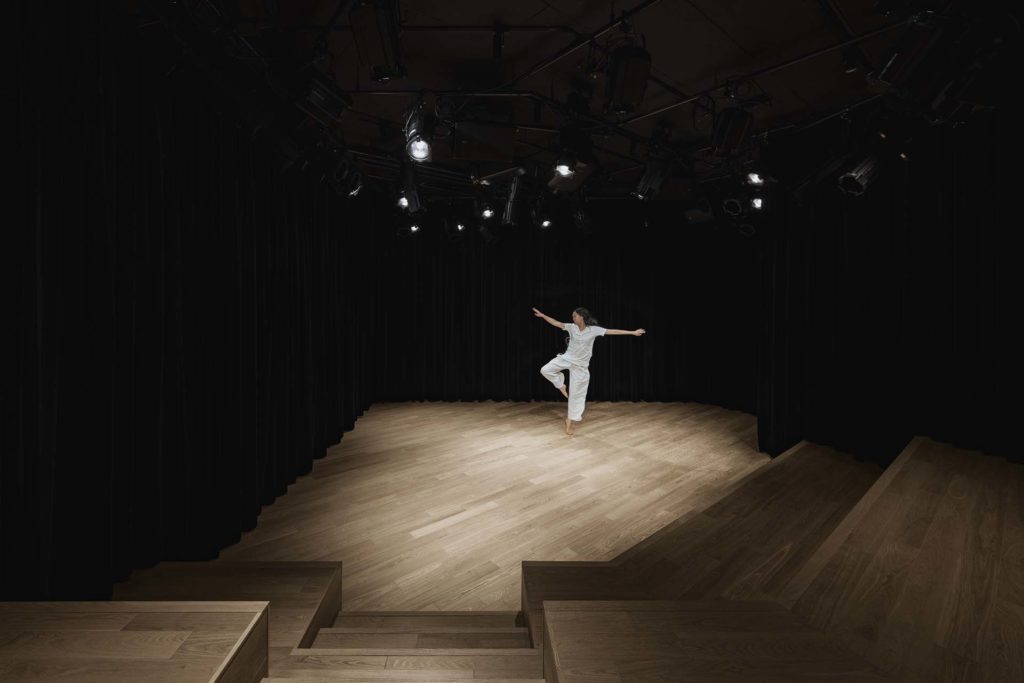
Murasaki Penguin Project Totsuka, from left to right: exterior of the building in the day; exterior of the building at night; and the performance space. Photos by Keishin Horikoshi / SS Inc
Being at the YPAM again reinforced the scale, depth, and innovation of performance cultures in Asia and the Pacific, which often do not get their due coverage in discussions of contemporary performance in Western literature. In the first few months of my PhD which began in September last year, my understanding of intermedial performance were framed predominantly by theories and practices from European and American contexts, simply because there was more documentation in the English language. I would like to explore the production of an anthology of intermedial performance contextualized by the Asia-Pacific diaspora after my doctoral studies, both in English as well as other spoken languages. Non-western performance makers need to continue to address and bridge this gap.
I came out of the YPAM with a strengthened design for my performance projects, new insights on the utilization of theatre technologies, and dramaturgical concerns for transnational creative exchanges that I have not considered before. I put my B1-level Japanese language skills to use beyond the online classroom, which got me out of trouble when I got on the wrong metro line in central Tokyo. I will return to Yokohama in the summer of this year for a four-week placement with Murasaki Penguin where I hope to further my knowledge in theatre technology. I will also present my first performance project at their new space in Totsuka before adapting it for spaces and audiences in Kuala Lumpur and Exeter in the months after.
Murasaki Penguin Project Totsuka photos published with permission and are by Keishin Horikoshi / SS Inc
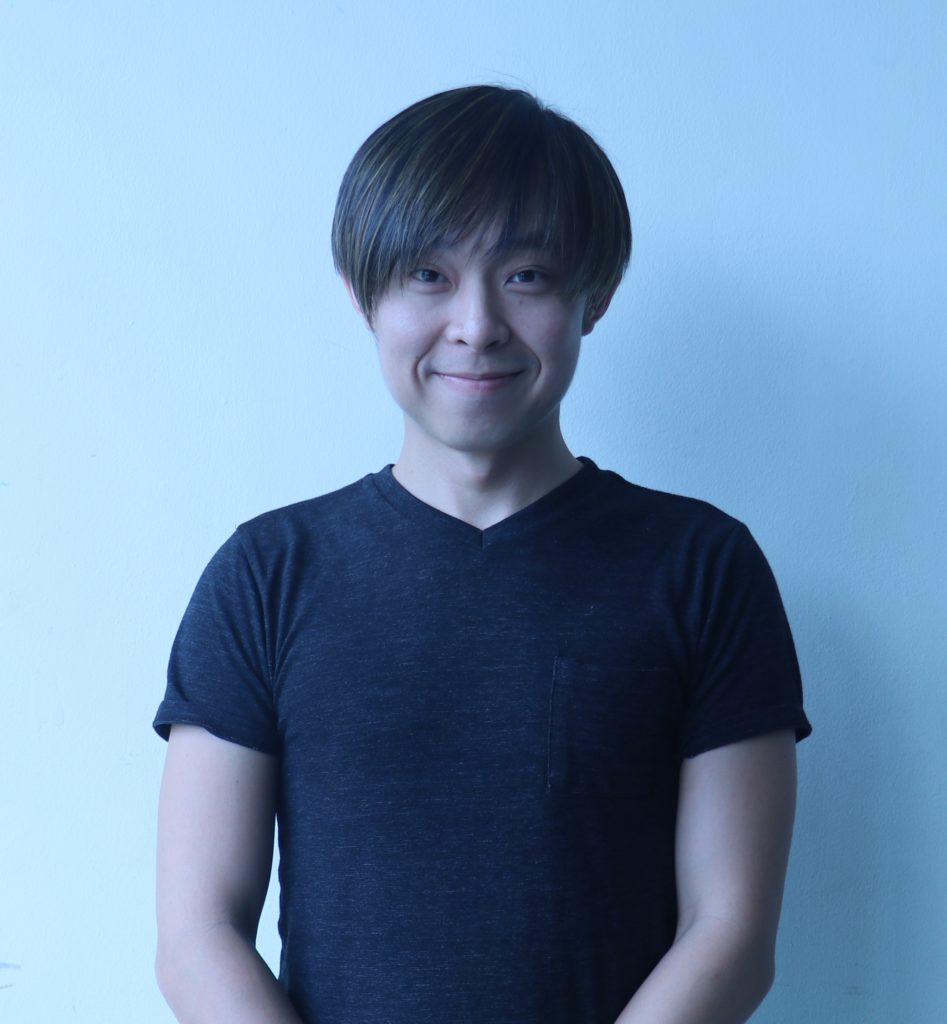
Kelvin Wong is a first-year PhD candidate in Performance Practice from Kuala Lumpur, Malaysia. His practice-based research attempts to reimagine the theatrical event for a digital generation and distinguish it from other forms of mediated experiences that they are exposed to. He is funded by the AHRC South, West and Wales Doctoral Training Partnership.
His first performance project involves collaborators from Japan, Malaysia, and the UK, which are also locations where the projects will be presented, between July and September 2024. If you would like to attend any of the showings, please reach out to Kelvin at kw651@exeter.ac.uk.
